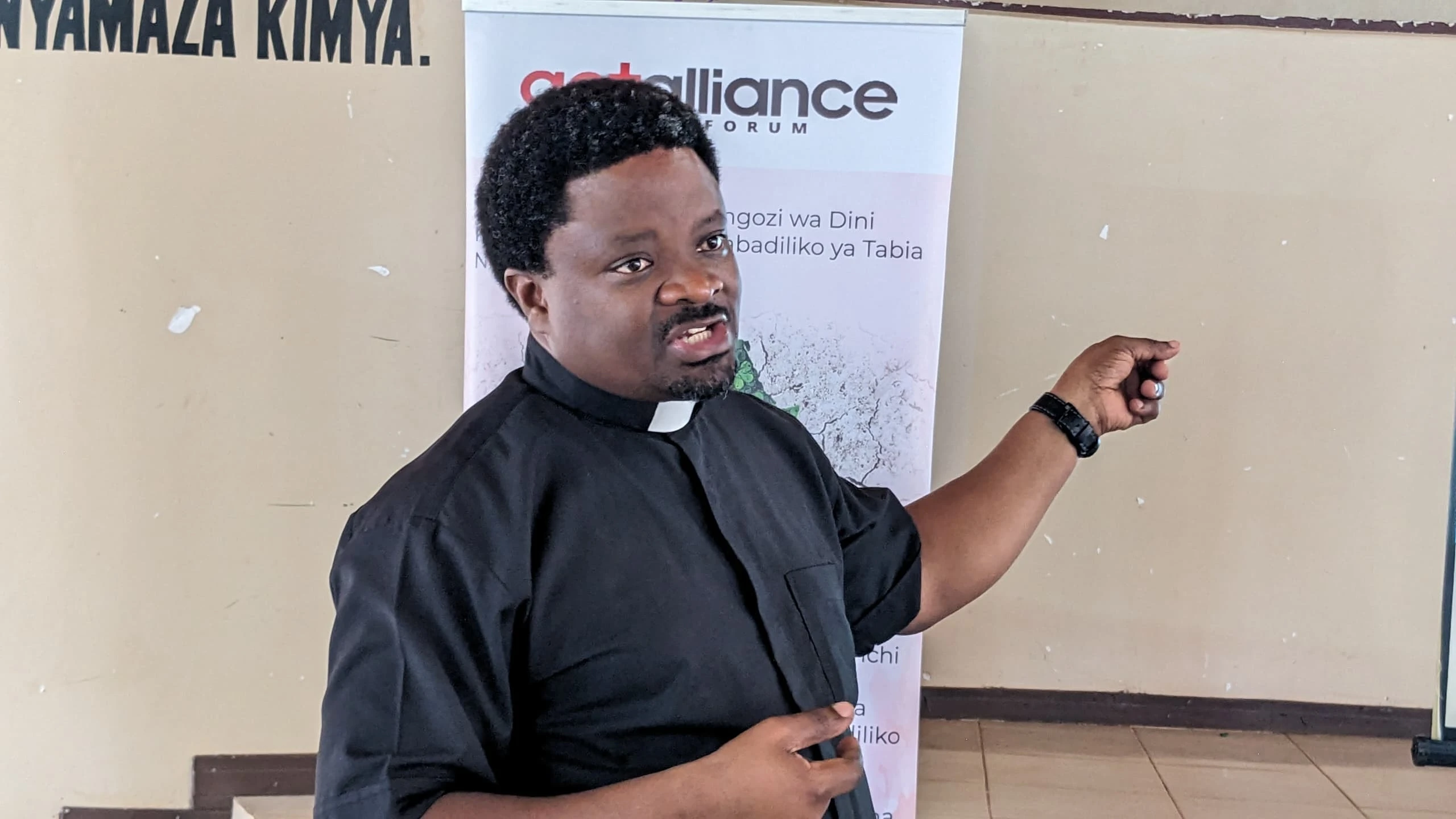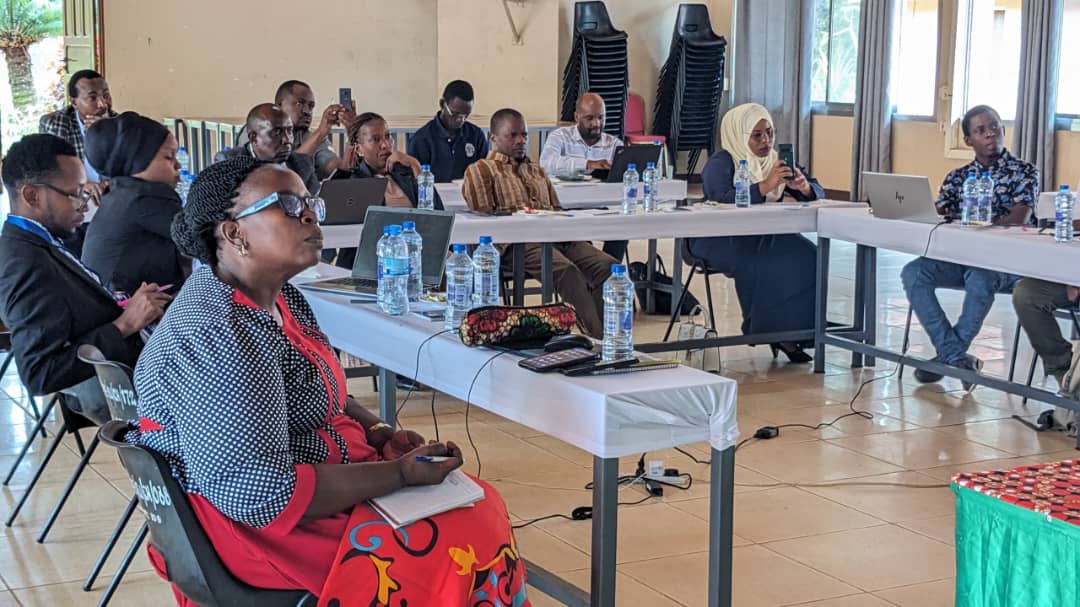Rebuilding hope for young mothers through school re-entry programme

TEENAGE pregnancy remains a major cause of school dropout among girls in Tanzania. Data from the United Nations Children’s Fund (UNICEF), teenage pregnancy remains a critical issue in Tanzania. Data shows that around 23 percent of adolescent girls aged 15–19 have experienced pregnancy.
High rates of child marriage are a key contributor, leading to nearly three out of four girls failing to complete secondary school. UNICEF notes that adolescent pregnancy and poor maternal nutrition are key factors in Tanzania’s high rates of maternal and neonatal mortality.
In response, re-entry guidelines were introduced to support young mothers in returning to school. These guidelines are grounded in national laws and policies.
Despite the legal frameworks that uphold girls' right to education, including the comprehensive school re-entry guideline released in February 2022, teen mothers still face significant obstacles when attempting to return to school after childbirth.
To address these challenges, in 2022/2023, the Christian Council of Tanzania (CCT), with financial support from Act Alliance Gender Justice, implemented the project ‘Faith in Action for Teen-Mothers' Health and Rights (FATHER)’.
The project aimed to break stigma and shift perceptions about teen mothers in Tanzania, leveraging the influence of faith leaders and religious teachings.
Rev. Modest Pesha, National Coordinator of the Act Alliance Tanzania Forum at CCT, explained that the project’s specific advocacy goal was to create an environment where the reintegration of teen mothers into their families, churches, and schools is positive and supportive at both community and family levels.
Teen mothers often face stigma and are trapped in cycles of poverty, bearing psychological scars. The most vulnerable—those from socioeconomically disadvantaged backgrounds—are often rejected at home, in schools, or churches.
Rev. Pesha shared this during a stakeholder’s consultation meeting on the status of implementing the school re-entry guideline for teen mothers held at CCT in Morogoro. He noted that families and churches often punish girls through excommunication. "This must change," he said, adding: “Faith leaders have an important role to play”.
A baseline study under the FATHER project identified the main drivers of early pregnancy as traditions, customs, and superstitions; poverty; lack of sexual and reproductive health (SRH) education; patriarchal norms; lack of female participation in SRH decision-making; distance to school and neglect of education’s importance.
The study recommended that faith leaders be engaged to provide psychosocial support systems to help teen mothers overcome guilt after childbirth. It also called for collaboration with government and stakeholders to establish at least one pilot information center where adolescent girls can access accurate SRHR information.
The study also urged the responsible ministry to ensure easy access to SRH-related curriculum for primary and secondary school clubs, to encourage club formation, and to empower religious and community leaders to challenge customs that fuel teen pregnancies and early marriages.
The study noted that many faith leaders are already supportive of teen mothers’ healing journeys and play a key role in helping them regain the confidence to return to school.
“If empowered, religious leaders can use their platforms to raise awareness and mobilize communities to protect girls from early and forced marriage driven by dowry, and to abandon harmful practices like ‘chagulaga’, Rev. Pesha stated.
He emphasized the importance of strengthening parent–child relationships to allow open dialogue. Meeting children's basic needs is also vital, since poverty is a major factor behind early pregnancy and school dropout.

However, participants at the consultation meeting stressed the need for government action: to enforce existing tools to prevent early pregnancies, provide updated data on school re-entry status, and monitor implementation of the 2022 guideline to inform future advocacy efforts.
During the meeting, the Msichana Initiative urged education stakeholders to revisit ineffective approaches and adopt more strategic interventions to support teen mothers returning to school.
Francis Shao, a representative from the Msichana Initiative, stressed that re-entry efforts will succeed only with supportive frameworks addressing the needs of both the teen mothers and their children.
"Returning students are a special group. They need more than academic support — they need life skills, SRH training, and human rights education," Shao explained.
He also called for budget allocations to recruit and retain competent teachers, and emphasized the need for well-trained psychosocial educators to provide quality, holistic support.
“We are committed to tackling systemic barriers that prevent girls from accessing education,” he added. “We work directly with communities to reduce stigma, encourage enrolment, and advocate for enabling policies and safe school environments.”
The Msichana Initiative also supports girls who have dropped out by providing them with school supplies — uniforms, books, and sanitary pads — and helps them re-enter secondary education.
It collaborates with teachers and trains school heads in partnership with the Ministry of Education and the President's Office for Regional Administration and Local Government (PORALG).
However, stakeholders raised concerns about a critical gap in the re-entry guideline: it does not specify the procedure for when a girl becomes pregnant while in school. While it outlines responsibilities for returning to school, it remains silent on how the student exits school, care during pregnancy, and preparation for re-entry.
This omission could lead to inconsistent practices across regions. Alarmingly, 47 percent of surveyed teen mothers said they would not return to school, even if the environment were supportive, due to fear of stigma and discrimination.
Presenting on Tanzania’s supportive legal framework for school re-entry, Gerald George from the Ministry of Education acknowledged that teenage pregnancy is a leading cause of school dropout. He reaffirmed that the 2022 re-entry guidelines are grounded in national policy.
George admitted that implementation challenges remain: stigma, discrimination, lack of awareness, unclear school procedures, and inadequate support systems.
He noted that the 2023 Education and Training Policy (ETP) address many of these issues. The policy clarifies re-entry procedures, supports awareness campaigns, calls for school-based counselling units, promotes partnerships and community engagement, and urges school leaders to incorporate re-entry into school planning while coordinating across sectors.
Top Headlines
© 2025 IPPMEDIA.COM. ALL RIGHTS RESERVED

























